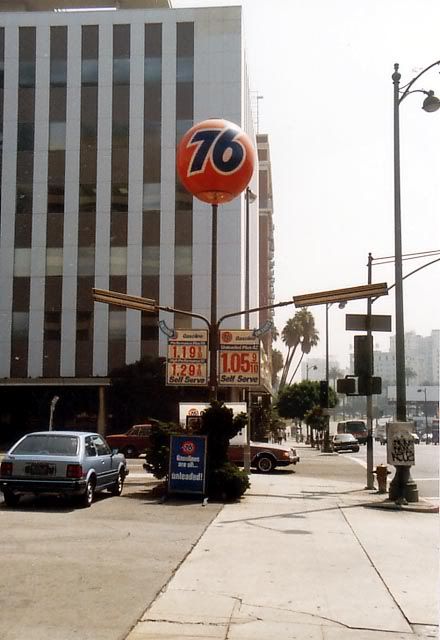rockin'robin
Well-Known Member
- Joined
- Apr 22, 2007
- Messages
- 24,431
- Reaction score
- 550
Memorial Day weekend kicks off the summer vacation season. Gas prices are trending lower, according to the AAA's Daily Fuel Gauge, but too great a demand will undoubtedly cause the price to rise. Economists note higher prices are generally a sign of a healthy economy even though the average citizen would like to see lower prices. The current lower prices might be short-lived and might not be indicative of the American economy.
CNN Money reported gas prices might be at the lowest, but that would depend on several factors. The Oil Price Information Service compiles the pump price averages for AAA. Chief oil analyst Tom Kloza noted the European economic situation and the "fear premium" on oil futures as having a hand in the decline of prices.
Austerity measures throughout the European Union and economic uncertainty has caused less demand for fuel among the member nations, resulting in a decrease in per barrel oil prices. An alteration in the uncertainty such as stabilization of the Spanish banking system and/or a return to normalcy in Greece might see an opposite effect.
A second factor is the wait-and-see attitude with regard to Iran. Constant fear of an imminent attack or a destabilizing war in the region that would alter oil production in Iran or its surrounding neighbors drives prices higher. While the economic sanctions and political rhetoric have cooled off with regard to Iran's plans for developing a nuclear energy capability, the "fear premium" remains low and contributes to the lower pricing of oil.
Volatile as the nature of politics in the Middle East continues to be, conditions could change at a moment's notice. Still, overall gas prices in the U.S. are trending lower -- not so much in the Western states and a little better than average on the East Coast -- and the national average shows a drop of 29 cents to $3.64 since it peaked in early April.
Although it might appear to be harmful on a smaller level, higher gas prices are indicative of a healthy and growing economy. Recession is when gas prices are seen to plunge to their lowest because of the general cutting back by people and companies on traveling and fuel costs. Less demand produces a larger supply. For oil companies to get rid of the excess supply, prices go down.
The prices also could be sending a mixed message about America's economy. Lowering gas prices could be an indication of an economic slowdown and not just a byproduct of world economic and geopolitical trends. If so, gas prices will continue to fall and that could become problematic for everyone as the U.S. remains the world's economic driver. Although those lower gas prices might sound great to the average person filling up their tank, it could spell a return to recession.
The Problem with Lower Gas Prices - Yahoo! News
CNN Money reported gas prices might be at the lowest, but that would depend on several factors. The Oil Price Information Service compiles the pump price averages for AAA. Chief oil analyst Tom Kloza noted the European economic situation and the "fear premium" on oil futures as having a hand in the decline of prices.
Austerity measures throughout the European Union and economic uncertainty has caused less demand for fuel among the member nations, resulting in a decrease in per barrel oil prices. An alteration in the uncertainty such as stabilization of the Spanish banking system and/or a return to normalcy in Greece might see an opposite effect.
A second factor is the wait-and-see attitude with regard to Iran. Constant fear of an imminent attack or a destabilizing war in the region that would alter oil production in Iran or its surrounding neighbors drives prices higher. While the economic sanctions and political rhetoric have cooled off with regard to Iran's plans for developing a nuclear energy capability, the "fear premium" remains low and contributes to the lower pricing of oil.
Volatile as the nature of politics in the Middle East continues to be, conditions could change at a moment's notice. Still, overall gas prices in the U.S. are trending lower -- not so much in the Western states and a little better than average on the East Coast -- and the national average shows a drop of 29 cents to $3.64 since it peaked in early April.
Although it might appear to be harmful on a smaller level, higher gas prices are indicative of a healthy and growing economy. Recession is when gas prices are seen to plunge to their lowest because of the general cutting back by people and companies on traveling and fuel costs. Less demand produces a larger supply. For oil companies to get rid of the excess supply, prices go down.
The prices also could be sending a mixed message about America's economy. Lowering gas prices could be an indication of an economic slowdown and not just a byproduct of world economic and geopolitical trends. If so, gas prices will continue to fall and that could become problematic for everyone as the U.S. remains the world's economic driver. Although those lower gas prices might sound great to the average person filling up their tank, it could spell a return to recession.
The Problem with Lower Gas Prices - Yahoo! News




